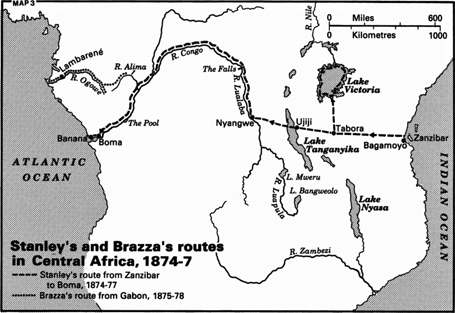Africa was, during the discovery of the New World in the late 15th century, beyond Abyssinia and the civilisations Sahara, what the Andromeda galaxy is to us today.
As the centuries went by Europe began to take more interest in Africa. Tales of gold, silver, iron, slaves and more whispered through the Arab merchants that for centuries had established trade with some of the interior peoples of Africa. Eventually began the whispers turned into reality with the trans-Atlantic slave trade to fuel the construction of the New World. But Europe’s relationship with Africa had just matured.

Fast forward to the end of the 19th century and the beginning of the Scramble for Africa, which was essentially a battle for control over the promise of Africa, for which ambitious monarchs such as Leopold II of Belgium, who upon noticing the rise of the Dutch through control of vast territory in East Asia and the establishment of the Dutch West Indies, catapulted the small nation into one that was prosperous.
Africa, in the eyes of the European monarchs and heads of state, was a land of infinite opportunity, one which empires could be expanded, even manifested. For centuries the interior of Africa lay hidden from the rest of the world, and most explorers who dared to go into Africa’s interior died of a plethora of causes diseases from Malaria and Dysentery to insanity after years of being trapped the interior of Africa or even being captured by tribes in the jungles of Central and West Africa.
European explorers such as Sir Henry Morton Stanley, who travelled 11,000 km from Zanzibar in the East to Boma along the Congo river between the years 1874–77, would eventually survive the trek into the African interior and open the floodgates for the Scramble that would, to an extent, play a significant role in the politics of the world over the start of the next century.

Meetings were held in London, Paris and Brussels were focused on drawing up borders for their respective nations and everyone tried to get as much of the African pie as possible.

Leopold II, disillusioned by his increasingly deteriorating power in Belgium, set his sights on the Congo. Through a very elaborate and intricate process of media manipulation, disguising his insatiable hunger for the immense natural wealth in the Congo for the salvation and civilising of African savages in need of the word of Christ and emancipation from Arab slave traders in the region, performed what is arguably one of the best PR campaigns in the modern era. His reign as the ‘custodian’ of the Congo, was one that would be of unspeakable brutality, repression and genocide.

